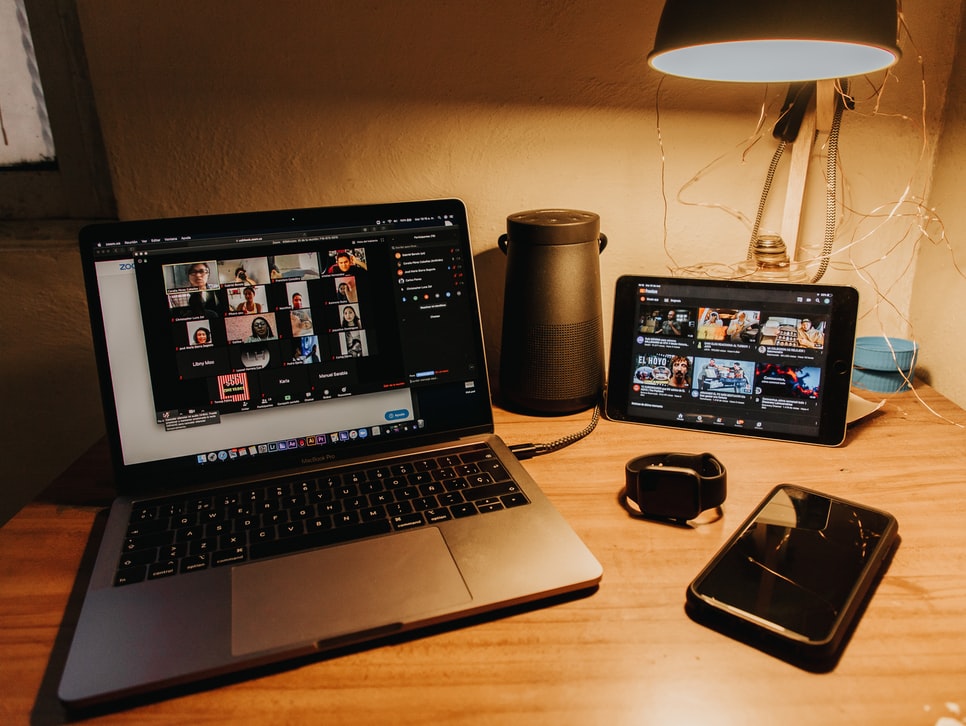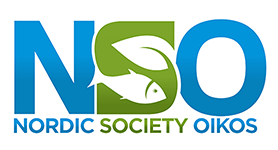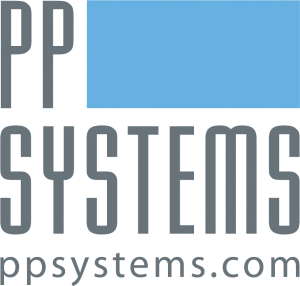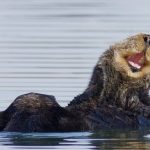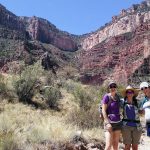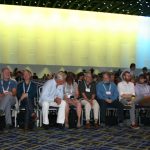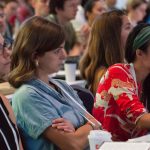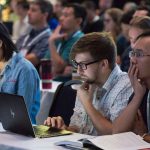About Workshops
Workshops offer participants an opportunity to learn new skills through interactive instruction and hands-on training in a 90-minute live video session. Workshops may include some uploaded materials available in advance, such as slides, prerecorded videos, and handouts. All workshops are free for any registered ESA attendee to attend but do require advance signup.
Workshop 1
Reciprocity of Indigenous Knowledge in Ecology Education: Towards a More Inclusive Ecology
Monday, August 2nd, 2021
12:00 PM – 1:30 PM Pacific Time
Session Description
There is growing awareness and interest among ecologists in Indigenous knowledges (IK) and ways of knowing. IKs encompass holistic knowledge about ecological systems in specific places, acquired over many human generations, and also ways of gathering, transmitting and using that information that are woven into and inseparable from the cultures and identities of Indigenous peoples. Accordingly, the value of IKs for understanding ecological phenomena are ethically accessible only through collaboration or partnership with the people themselves and only in a manner that provides benefits for, and respects the rights of, the people to share only what they are willing and in a manner they deem culturally appropriate. Nevertheless, students of ecology would benefit from IK, but without a deep background in relational accountability of place-based identities, non-Indigenous educators are generally poorly equipped to do more than assign readings for their students.
In this workshop, we will provide guidance on best practices for appropriate inclusion of IK in ecology courses and curricula to help all students understand and acknowledge history of place to better appreciate what IK is, how it relates to Eurocentric science, and respect cultural values. We invite attendees to submit their ecology syllabus to the workshop leader prior to the workshop, and indicate which topics they currently teach that they consider highest priority. The workshop leader(s) will review the current state of ecology course content and select a few topics to serve as examples for alternative perspectives.
Session Summary
There is growing awareness and interest among ecologists in Indigenous knowledges (IK) and ways of knowing. Our workshop will assist educators in formulating culturally respectful, ethical, and mutually beneficial approaches to including IK in ecology courses and curricula.
Organizer:
Robert Newman – University of North Dakota, Biology
Co-organizers:
James Rattling Leaf – University of Colorado – Boulder, North Central Climate Adaptation Science Center
Lloydene Hill – Fielding Graduate University’,
Joseph Gazing Wolf – University of North Carolina, Greensboro, Biology
Speaker:
Michelle R. Montgomery – University of Washington – Tacoma, School of Interdisciplinary Arts and Sciences in American Indian Studies and Ethnic, Gender and Labor Studies
Workshop 2
Student Networking Workshop: Tips for Making Productive Connections at ESA 2021!
Monday, August 2nd, 2021
12:00 PM – 1:30 PM Pacific Time
Session Description
As students, we attend the meeting to share our research, learn about new ideas, and rub elbows with many awesome ecologists. Critical to a productive meeting experience is networking with a wide range of people and forming relationships with other students from around the world. This is not a natural skill set for most people; the second half of this session will focus on networking with fellow students to build relationships and foster future collaboration. We will provide some brief tips on how to start and maintain conversations with time for student networking. This session targets first time attendees, but advice and discussion/networking opportunities are relevant to students at all levels as well as recent graduates in attendance.
Session Summary:
The purpose of this workshop is to provide students with networking tips and tricks to help start conversations with current and potential colleagues as well as to help foster future collaborations.
Organizer:
Callie Oldfield – University of Georgia
Workshop 3
13th REEFS: Resources for Ecology Education, Fair and Share
Monday, August 2nd, 2021
3:30 PM – 5:00 PM Pacific Time
Session Description
This popular session, in its 13th year, provides faculty an opportunity to learn about favorite classroom activities from colleagues and to learn about what they are doing to engage undergraduate students using student-active methods. This year we are particularly interested in presentations that highlight inclusive and flexible learning activities that can successfully engage students in remote or hybrid teaching formats as well as in-person. Instructors at all levels of experience are encouraged to participate. This session will break into small groups so that participants can discuss teaching challenges and strategies.
Goals
- Learn about what colleagues are doing to engage their undergraduate students using active learning methods.
- Improve classroom activities via the exchange of constructive feedback.
- Foster a network of support in advancing ecology education.
- Promote the recommendations of the 4DEE framework and Vision & Change.
Session Summary
Participants learn about inclusive and student-active learning activities that can engage students in a variety of formats, including in-person and remote experiences. The session promotes exchange of ideas about teaching. Faculty at all levels of experience are encouraged to participate and learn how to submit activities to ESA’s EcoEdDigital Library.
Organizer:
Tracy Gartner – Carthage College, Environmental Science and Biology
Co-organizers:
David R. Bowne – Elizabethtown College, Department of Biological and Environmental Sciences
Jennifer Doherty – University of Washington, Department of Biology
Teresa Mourad – Ecological Society of America, Education & Diversity Programs
Erica Schlickeisen Tietjen – Nevada State College, Dept. of Physical and Life Sciences
Workshop 4
Accessing Research Funding from Federal Agencies (An Early Career Networking Session)
Monday, August 2nd, 2021
3:30 PM – 5:00 PM Pacific Time
Session Description
Navigating federal agencies for research and funding opportunities in ecology can be complex, especially for early career investigators. Representatives from multiple federal agencies and organizations involved with ecological research will share information about research funding, fellowships and/or related opportunities. At this session, we will strive for representation from DOD, DOE, EPA, NASA, NOAA, NSF, USDA, USFS, USGS, and other relevant federal agencies. After each agency’s presentation, representatives will meet with session participants in small roundtable discussions to answer questions about their programs. While early career ecologists are particularly encouraged to attend, this session is open to everyone.
Session Summary
Program officers from multiple federal agencies (e.g., DOD, DOE, EPA, NASA, NOAA, NSF, USDA, USFS, USGS, etc.) will share information about research funding, opportunities, and/or fellowships at their organizations and will be available to meet with workshop participants.
Organizer:
Daniel Stover – US Department of Energy, Office of Biological and Environmental Research
Co-organizers:
Betsy Von Holle – National Science Foundation, Division of Environmental Biology
Kurt Preston – U.S. Department of Defense, SERDP/ESTCP
Elisabeth Larson – NASA GSFC/SSAI, Code 618
Moderator:
Daniel Stover – US Department of Energy, Office of Biological and Environmental Research
Workshop 5
RaceTalk Skills for Cross-Racial Communication (1st of 2 Sessions Offered)
Tuesday, August 3, 2021
11:30 AM – 2:00 PM
Session Description
Interested in acquiring the skills, tools and strategies that will boost your confidence and ability to engage effectively in cross-racial dialogues? Then this workshop is for you. The workshop draws on the sociological literature to help participants understand how structural racism shapes and informs “racetalk” across social groups. By the end of the workshop participants are expected to acquire a framework for identifying common obstacles to cross-racial dialogues about race and racism, as well as specific tools and strategies for addressing them. Tools and strategies reflect empirically-based best practices and years of practical experience. This workshop will benefit any individual who wishes to improve their racetalk skills in order to more effectively communicate, interact and build trust across racial lines.
Organizer
Bedelia Richards, RaceTalk LLC
Workshop 6
Building Alliances with Climate Activists to Support Climate Action and Ecological Knowledge
Tuesday, August 3rd, 2021
12:00 PM – 1:30 PM Pacific Time
Session Description
The special session at the 2020 Ecological Society of America (ESA) annual meeting titled “Cultivating a culture of community engagement at ESA” highlighted a need for stronger partnerships between ecologists and activists to address wicked problems such as climate change. Recognizing that alliances between ecologists and activists are a vital connection enabling translation of ecological theory into practice, we are organizing a workshop that fosters interactive conversations between these groups of people. These conversations will explore innovative strategies for building and maintaining relationships that amplify communication, interpretation, creation, defense, and delivery of ecological knowledge. ESA members participating in this workshop will 1) learn about the goals, strategies, and systems of climate activism; 2) develop skills for building and managing partnerships grounded in the principles of respect, relationship, reciprocity and responsibility; and 3) partner with climate activists to develop a plan for mutually-beneficial interpretation, creation, defense, or delivery of ecological knowledge. Broadly, these activities will help build long-term alliances among ecologists and climate activists, and empower ESA members to develop relationships, navigate complex conversations among diverse stakeholders, accommodate differential power dynamics, manage conflicts, avoid conflicts of interest, expand their professional service, and increase their role in managing global change threats.
Session Summary
Through conversations with climate activists, participants will 1) learn about the goals, strategies, and systems of climate activism; 2) develop skills for building partnerships grounded in respect, relationship, reciprocity and responsibility; and 3) develop a plan for interpreting, creating, defending, or delivering ecological knowledge in partnership with climate activists.
Organizer:
Kennedy Rubert-Nason – University of Maine Fort Kent – Madison, Natural and Behavioral Sciences
Co-organizers:
A.M. Aramati Casper – Colorado State University
Robert Newman – University of North Dakota, Biology
Kirsten Schwarz – University of California, Los Angeles, Departments of Urban Planning & Environmental Health Sciences
Moderator:
A.M. Aramati Casper – Colorado State University
Workshop 7
Macrosystems EDDIE: Teaching Ecological Forecasting to Undergraduates
Tuesday, August 3rd, 2021
12:00 PM – 1:30 PM Pacific Time
Session Description
Ecological forecasting is an emerging approach which provides an estimate of the future state of an ecological system with uncertainty, allowing society to prepare for changes in important ecosystem services. Ecological forecasts are a powerful test of the scientific method because ecologists make a hypothesis of how an ecological system works; embed their hypothesis in a model; use the model to make a forecast of future conditions; and then when observations become available, assess the accuracy of their forecast, which indicates if their hypothesis is supported or needs to be updated. Consequently, macrosystems ecologists are increasingly using ecological forecasts to predict how ecosystems are changing, but to date there have been few opportunities for receiving training in ecological forecasting at the undergraduate level.
Our team is developing teaching modules to teach the foundational concepts of ecological forecasting to undergraduates with R Shiny apps as part of the Macrosystems EDDIE (Environmental Data-Driven Inquiry & Exploration; MacrosystemsEDDIE.org). We use large, publicly available datasets from NEON and GLEON to engage students in ecology and improve their quantitative reasoning. Each module can be adapted for use in introductory, intermediate, and advanced courses to enhance students’ understanding of macrosystems ecology and ecological forecasting. In this workshop, we will provide an overview of the Macrosystems EDDIE modules to interested instructors, as well as lessons learned to aid teaching in both virtual and face-to-face classrooms.
Session Summary
Engaging undergraduate students in hands-on modeling and forecasting activities translates into a workforce with increased data science, systems thinking, and quantitative skills. This workshop will provide instructors with all materials needed to teach ecological forecasting with stand-alone, modular activities that use publicly-available datasets from NEON and R Shiny apps.
Organizer:
Tadhg Moore – Virginia Tech, Biological Sciences
Co-organizers:
Cayelan Carey – Virginia Tech, Biological Sciences
Quinn Thomas – Virginia Tech, Forest Resources and Environmental Conservation
Whitney M. Woelmer – Virginia Tech, Biological Sciences
Workshop 8
Diverse Leadership in Ecology: Expanding Your Influence and Generating a Leadership-Network
Tuesday, August 3rd, 2021
3:30 PM – 5:00 PM Pacific Time
Session Description
The purpose of this workshop is to prepare ecologists from underrepresented racial and ethnic minority groups for leadership positions within ecological fields and ESA, spaces where diversity continues to remain chronically low. By 2045, racial and ethnic minorities is projected to be the majority of people in the US. Yet, we are seeing a back sliding of diversity: “Leaking Talent: How People of Color are Pushed Out of Environmental Organizations” (Green 2.0 2019). This workshop seeks to create awareness of leadership opportunities and enhance the ability of URM ecologists to pursue and join leadership positions in ecology.
In recent years, the ESA leadership and community have addressed multiple barriers to diversity through its policies, programs, and practices. URM ecologists are exposed to many micro and macro-aggressions that hamper their ability to successfully lead and express their vision and opinions. Studies show that the structure and culture of many organizations are barriers to authentic inclusion. During this workshop, we will highlight the characteristics of inclusive organizations that have eliminated or minimized the barriers that diverse leaders face.
We will then focus on 1) How to find/create leadership opportunities? 2) What core skills lead to successful leadership? 3) What strategies can diverse people in leadership positions implement to navigate and implement their vision and objectives? By the end of this workshop, participants will have identified core leadership skills, potential leadership positions, and joined a community of URM ecologists in support of their leadership endeavors.
Session Summary
This workshop seeks to enhance the ability of racial and ethnic minority ecologists to pursue and join leadership positions in ecology. Participants will explore characteristics of inclusive organizations, identify core leadership skills, potential leadership positions, and join a community of minority ecologists in support of their leadership endeavors.
Organizer:
Teresa Mourad – Ecological Society of America, Education & Diversity Programs
Co-organizers:
Tiffany S. Carey – Parks and People Foundation
Anjali Boyd – Duke
Wilnelia Recart – University of San Diego, Biology
Frederick Abbott – Ecological Society of America
Workshop 9
Telling Stories, Sharing Knowledge, and Seeing the Nature of Things: Teaching Scientific Communication in Ecology Courses
Tuesday, August 3rd, 2021
3:30 PM – 5:00 PM Pacific Time
Session Description
There is increasing recognition of the need to 1) incorporate science communication skills into core curriculum and 2) broaden audiences to include the general public, especially given that it is often non-scientists who make decisions on environmental policy. Indeed, effective science communication is central to science that benefits society. However, science communication training is seldom included in formal scientific training. When included, it may be limited to communication among peer audiences, i.e. lab reports, peer-reviewed publications, dissertations, and professional presentations.
Ecology courses provide an opportunity to introduce early career ecologists to best practices in science communication, but fitting scicomm into courses is a challenge. To help educators enhance this aspect of their teaching, workshop facilitators who teach science communication in EEB departments will guide participants through goal setting and module/assignment design. Using backwards design, participants will apply best practices for incorporating science communication in their courses. Examples will emphasize stand-alone course modules and/or class exercises that could be easily incorporated into existing courses. Participants will leave with a draft module focusing on science communication using inclusive science communication coupled with science storytelling, visual communication, and/or talking with the media. This workshop pairs with the OOS Equity-Focused, Evidence-Based Approaches to Teaching and Assessing SciComm in Higher Education. Workshop instructors are past and current officers of the ESA Communication & Engagement Section.
Session Summary
Science communication is central to science that benefits society. Ecology courses can introduce students to best practices, but fitting in scicomm is a challenge. Workshop instructors will guide participants through module/assignment design. Participants will leave with a draft module using inclusive communication, storytelling, visual communication, and/or talking with the media.
Organizer:
Robert Newman – University of North Dakota, Biology
Co-organizers:
Bethann Merkle – University of Wyoming, Department of Zoology & Physiology; UWyo Biodiversity Institute
Skylar Bayer – Maine Sea Grant
Kirsten Schwarz – University of California, Los Angeles, Departments of Urban Planning & Environmental Health Sciences
Elizabeth M. Cook – Barnard College, Environmental Science
Moderator:
Bethann Merkle – University of Wyoming, Department of Zoology & Physiology; UWyo Biodiversity Institute
Workshop 10
Exchanging Best Practices to Advance Diversity, Equity, Inclusion and Justice (DEIJ) in ESA and Our Institutions
Wednesday, August 4th, 2021
12:00 PM – 1:30 PM Pacific Time
Session Description
This workshop, led by members of the ESA Task Force on Diversity, Equity, Inclusion and Justice (DEIJ), will focus on strategies to advance DEIJ in ESA and in our institutions. Objectives of the workshop are:
- To learn about the work of the DEIJ Task Force
- To learn about the steps that ESA has taken to advance DEIJ, progress made, and future steps
- To facilitate exchange of best practices and practical strategies to advance DEIJ within ESA and in participants’ institutions
- To provide participants with resources to support DEIJ efforts
- To help participants develop / refine their DEIJ plans
The Task Force on Diversity, Equity, Inclusion and Justice (DEIJ) was formed in Fall 2020 by the ESA Governing Board.
Session Summary
This workshop, led by members of the ESA Task Force on Diversity, Equity, Inclusion and Justice (DEIJ), will focus on the work of the DEIJ Task Force, progress of DEIJ efforts in ESA, facilitate exchange of best practices and provide resources to advance DEIJ in the ESA community.
Organizer:
Pamela Templer – Boston University, Department of Biology
Co-organizer:
Zakiya Leggett – North Carolina State University, Department of Forestry and Environmental Resources
Robert Newman – University of North Dakota, Biology
Anjali Boyd – Duke
Jacquelyn Gill – University of Maine, School of Biology & Ecology
Jacoby Carter – US Geological Survey, National Wetlands Research Center
Teresa Mourad – Ecological Society of America, Education & Diversity Programs
Catherine O’Riordan – Ecological Society of America
Workshop 11
How Scientists Can Help Restore Scientific Integrity and Advocate for Science-Based Policy
Wednesday, August 4th, 2021
12:00 PM – 1:30 PM Pacific Time
Session Description
With the change to the pro-science Biden administration, many researchers want to help restore science to its rightful place and ensure that it informs policy decisions. This session, led by attorneys from the Climate Science Legal Defense Fund (CSLDF), focuses on how principles of scientific freedom and academic integrity can help scientists further these goals.
Our discussion will include what constitutes scientific integrity violations at federal agencies, universities, and other research institutions and how those entities handle scientific integrity complaints. We’ll talk about how to strengthen institutional scientific integrity policies and provide tips to help scientists navigate the process of doing so. And we’ll discuss the interface of academic freedom principles and scientific integrity and how scientists can rely on academic freedom rights to help them advocate for science.
Session Summary
In this session, we’ll discuss how scientists can use institutional scientific integrity policies and principles of academic freedom to advocate for science and evidence-based policy-making.
Organizer:
Augusta Wilson – Climate Science Legal Defense Fund
Speaker:
Augusta Wilson – Climate Science Legal Defense Fund
Workshop 12
Communicating Your Science with the Media
Wednesday, August 4th, 2021
3:30 PM – 5:00 PM Pacific Time
Session Description
Ever wanted to see your research in the news? Curious about how to pitch your newsworthy research to your institution’s or university’s press office or PIO? Ever been contacted by a reporter about your exciting results, but didn’t know the next steps or how to communicate effectively?
Attend this workshop to learn the dos and don’ts of communicating with journalists and other media. This hands-on session will provide participants with an overview of how to share your science in an accurate and engaging manner for greater public awareness.
An overview presentation will be capped by an interactive activity to help workshop participants test their communication skills.
Session Summary
Public knowledge of scientific research is informed by effective communication and media outreach strategies. This hands-on session will provide tips for working with your press officer, discuss best practices for working with reporters, and supply participants with tools to publicize their research in a clear, engaging manner.
Organizer:
Heidi Swanson – Ecological Society of America
Co-organizer:
Alison Mize – Ecological Society of America
Workshop 13 – CANCELLED
ESA-SEEDS Chapter Network Workshop
Wednesday, August 4th, 2021
3:30 PM – 5:00 PM Pacific Time
Session Description
The ESA SEEDS Program has over 115 Chapters across the US. This workshop is intended for students and faculty to learn about the program, network and discuss new strategies for our SEEDS Chapters. Please attend if you wish to start a SEEDS Chapter at your institution.
Session Summary
The ESA SEEDS Program has over 115 Chapters across the US. This workshop is intended for students and faculty to learn about the program, network and discuss new strategies for our SEEDS Chapters. Please attend if you wish to start a SEEDS Chapter at your institution.
Organizer:
Frederick Abbott – Ecological Society of America
Co-organizer:
Esbeiry Cordova-Ortiz – Ecological Society of America, Education and Diversity Department
Workshop 14
Aligning Your Teaching with the Four-Dimensional Ecology Education (4DEE) Framework
Thursday, August 5th, 2021
12:00 PM – 1:30 PM Pacific Time
Session Description
ESA has endorsed the Four-Dimensional Ecology Education (4DEE) Framework. The 4DEE framework is a set of recommendations for ecology curricula that cover both content and skills. Aligning your teaching with the 4DEE framework can help promote student learning outcomes related to both the breadth and depth of ecology. This workshop will have three parts. In Part I you will learn about 4DEE. In Part II you will work with a tool that helps evaluate the alignment of your teaching with 4DEE. In Part III, based on what you discover in Part II, you will discuss your teaching alignment. This will include sharing your best practices with others, as well as discovering new ways to align your teaching with the 4DEE Framework. For more information on the 4DEE framework please visit esa.org/4DEE/
- Objectives for workshop participants:
- Understand the 4DEE framework
- Evaluate the alignment of your teaching with 4DEE
- Share your best practices
- Discover ways to align your teaching with 4DEE
- Foster a network of support in advancing ecology education
Session Summary
In this workshop you will work with a tool that helps evaluate the alignment of your teaching with 4DEE. You will discuss your teaching alignment with fellow ecologists. This will include sharing your best practices, as well as discovering new ways to align your teaching with the 4DEE Framework.
Organizer:
Justin St. Juliana – Cornell University, Ecology and Evolutionary Biology
Workshop 15
Conversations with NSF: Research, Diversity, and Training Challenges and Opportunities
Thursday, August 5th, 2021
12:00 PM – 1:30 PM Pacific Time
Session Description
The National Science Foundation (NSF) provides many funding opportunities for basic research and training in ecology and evolutionary biology. NSF supports researchers at all career stages and efforts to address diversity, equity, and inclusion in the research community. The purposes of this session are to inform our communities about ongoing and new funding opportunities at NSF and to receive comments and suggestions on how the Foundation can best serve ecologists. NSF representatives will include program officers and division directors from programs broadly relevant to ecology and environmental research and training. Topics that will be covered include NSF’s responses to Covid and to issues of diversity, equity, and inclusion, NSF’s Big Ideas and their associated solicitations, BIO Directorate 2022 priorities, NEON, Integrating Biology, basic research proposals and the review process, core programs, new and continuing special competitions, cross-cutting programs, and network and observatory infrastructure support. Following a brief presentation, much of the session will be town-hall style Q&A. Audience members are encouraged to bring questions.
Session Summary
The National Science Foundation provides many funding opportunities for basic research and training in ecology and evolutionary biology. The purposes of this session are to inform our communities about ongoing and new funding opportunities at NSF and to receive comments and suggestions on how the Foundation can best serve ecologists.
Organizer:
Elizabeth Blood – National Science Foundation, Program Director
Co-organizers:
Stephanie E. Hampton – Washington State University, Center for Environmental Research, Education, and Outreach
Kendra Mclauchlan – National Science Foundation, Division of Environmental Biology
Matthew Kane – National Science Foundation, BIO-DEB
John D. Schade – National Science Foundation, Ecosystem Science Cluster
Heather L. Throop – National Science Foundation, Division of Environmental Biology
Gary A. Lamberti – National Science Foundation, Division of Environmental Biology
Doug Levey – National Science Foundation, Population and Community Ecology Cluster
Betsy Von Holle – National Science Foundation, Division of Environmental Biology
Samuel Scheiner – National Science Foundation, Div. of Environmental Biology
Montona Furtrell-Griggs – National Science Foundation, Division of Biological Infrastructure
Ford Ballantyne – National Science Foundation, Division of Environmental Biology
Roland P. Roberts – National Science Foundation, BIO-DBI
Irwin Forseth – National Science
Workshop 16
Backward Design And Inclusive Pedagogy for Teaching Ecology Courses
Thursday, August 5th, 2021
3:30 PM – 5:00 PM Pacific Time
This workshop currently has a waiting list — contact register@nullesa.org to add your name!
Session Description:
There is an international movement to transform STEM courses using evidence-based teaching practices. As ecologists we teach students how organisms interact with their environment, a topic full of opportunities for student engagement and interaction with course material. By teaching innovative inclusive courses that develop students into critical thinkers capable of many different scientific practices, we are preparing a diverse student body for a multitude of different careers.
The Early Career Ecologists Section will run a workshop to help ecologists create a scaffold for developing more effective courses. This workshop will focus on Backward Design and Inclusive pedagogy, which includes brainstorming learning objectives, designing assessments, and building course materials that reflect the goals of a course. All aspects of the workshop are informed by evidence-based teaching practices and participants will be exposed to a variety of teaching tools, strategies, and resources.
Participants will leave the workshop with a comprehensive course design informed by Discipline-Based Education Research. The workshop will be most effective if participants bring a course syllabus to the workshop for constructive feedback and development. Topics are not limited to ecology courses, but can be anything related to biology or environmental science. Building a course from scratch is also possible, so come ready to share your ideas! The workshop is BYO Syllabus.
Session Summary:
This workshop will help ecologists create a scaffold for developing more effective courses. The focus is on Backward Design and Inclusive Pedagogy, which include brainstorming learning objectives, designing assessments, and building course materials that reflect course goals. Participants will leave with a comprehensive course design informed by Discipline-Based Education Research.
Organizer:
Nathan Emery – University of California Santa Barbara, Ecology, Evolution and Marine Biology Department
Workshop 17
Improving Workplace Climate: Strategies for Responding to Harassment and Other Hostile Behaviors
Thursday, August 5th, 2021
3:30 PM – 5:00 PM Pacific Time
Session Description
Harassment and bullying endanger the professional and personal well-being of individuals and their communities and contributes to hostile climates in science and academic workplaces. These behaviors can exploit differences in religion, race, class, ability, sexual orientation, and gender identity and are especially toxic when perpetrated by people in positions of power, such as supervisors or advisors. Our goal is to raise awareness of why these behaviors are so prevalent in academia and in scientific disciplines, discuss initiatives to address harassment as research misconduct, and present practical strategies for reducing instances of hostile behaviors and for supporting its targets. As a result of this session, participants will be able to identify: different ways in which harassment can manifest in research environments; strategies for bystander intervention, and resources for cultural change in academic institutions and professional societies.
This 90-minute session will consist of: 1) 15-minute introduction, 2) 15-minute training of bystander intervention strategies, 3) 40-minute discussion of real world scenarios and active practice of bystander intervention, and 4) 20-minute discussion and final debriefing. The information section will present data on the problem and examples of how professional societies are addressing harassment through promoting cultural and institutional change. The training section will present bystander intervention strategies. In the final section, participants will discuss their response to real scenarios and practice intervention strategies in small, moderated groups. Finally, a group discussion will allow for follow-up questions and general debriefing of this sensitive topic. This workshop is part of ADVANCEGeo, a NSF-funded project.
Session Summary
This interactive workshop identifies academic practices and institutional structures that allow for sexual harassment and other hostile behaviors to persist, provides training in personal intervention strategies to protect and support targets of harassment and describes resources for cultural change in academic institutions and professional societies.
Organizer:
Anne E. Kelly – California State University Fullerton, Desert Studies Center
Co-organizer:
Erika Marin-Spiotta – University of Wisconsin-Madison, Geography
Workshop 18
Assess What’s Important: Creating Assessments That Show How Students Use Their Ecological Knowledge
Friday, August 6th, 2021
7:00 AM – 8:30 AM Pacific Time
Session Description
Assessment of student learning is critical and designing assessments that demonstrate what students know and are able to do are key to transforming undergraduate biology. Vision and Change in Undergraduate Biology Education and the Ecological Society of America’s Four-dimensional Ecology Education (4DEE) Framework provide conceptual frameworks for thinking about and designing undergraduate biology/ecology courses. Importantly, both emphasize multidimensional learning that helps instructors define what they want students to learn (core ideas), and what they want students to do with their knowledge (scientific practices). The 4DEE framework also highlights how students focus their knowledge through multiple lenses (crosscutting concepts), and how they connect ecological phenomena and society (human-environment interactions). The 2012 National Research Council report, A Framework for K-12 Science Education: Practices, Crosscutting Concepts, and Core Ideas advocates a similar framework for pre-college students, and initially introduced the idea of three-dimensional learning as a guide to help students develop a robust understanding of science.
Workshop participants will engage in groups to redesign and develop open-ended and multiple-choice assessments aligned with learning objectives and guided by the criteria we have developed as part of the Three-Dimensional Learning Assessment Protocol (3D-LAP; Laverty et al 2016) and the 4DEE Framework https://www.esa.org/4DEE/. Facilitators will guide assessment item development and alignment with learning objectives. Participants will leave with a working knowledge of how to apply multidimensional learning to modify existing assessment items and build new ones. Please bring a sample exam to work with and the core ideas for student learning from your course.
Session Summary
During this workshop, participants will engage in groups to redesign and develop open-ended and multiple-choice assessment questions aligned with the 4DEE framework and course learning objectives. Please bring a
Organizer:
Luanna Prevost – University of South Florida, Dept. of Integrative Biology
Co-organizers:
Diane Ebert-May – Michigan State University, Plant Biology
Jennifer Doherty – University of Washington, Department of Biology
Amanda Sorensen – Michigan State University, Community Sustainability
Workshop 19
Reproducibility for Everyone
Friday, August 6th, 2021
7:00 AM – 8:30 AM Pacific Time
Session Description
Rigor and reproducibility are at the core of modern science and set apart scientific inquiry from pseudoscience. Many new initiatives and tools have been established to address barriers to reproducibility.
Reproducibility for Everyone (R4E) is a global, community-led reproducibility education initiative. R4E runs practical and accessible workshops to introduce the concept of reproducibility to researchers. We demonstrate reproducible tools and methods that can improve research by making it more efficient, transparent, and rigorous. Since 2018, R4E volunteer instructors have reached over 2000 researchers around the world through over 30 workshops.
This workshop will introduce reproducible workflows and a range of tools along the themes of organization, documentation, analysis, and dissemination. After a brief introduction to the topic of reproducibility, the workshop will provide specific tips and tools useful in improving daily research workflows. The content will include modules such as data management, electronic lab notebooks, reproducible bioinformatics tools and methods, protocol and reagent sharing, data visualization, and version control. This is an interactive workshop as participants will be able to contribute to the discussion through live document sharing, as well as an interactive activity. The methods and tools introduced help researchers share work with their future self, their immediate colleagues, and the wider scientific community.
Session Summary
Rigor and reproducibility are at the core of modern science. Reproducibility for Everyone is a global community-led reproducibility education initiative. Our workshop will introduce the concept of reproducibility, as well as demonstrate tools and methods that can improve research by making it more efficient, transparent, and rigorous.
Organizer:
Nafisa M Jadavji – Midwestern University, Biomedical Sciences
Co-organizers:
Raj Rajeshwar Malinda – Washington University, Medicine
Nele A Haelterman – Baylor College of Medicine, Molecular and Human Genetics
Rintu Kutum – CSIR-Institute of Genomics and Integrative Biology, Informatics and Big data
Workshop 20
Introduction to COMPADRE and COMADRE Matrix Population Model (MPM) Repositories: Data Submission, Database Use, and Demographic Analyses in R
Friday, August 6th, 2021
9:00 AM – 10:30 AM Pacific Time
Session Description
This workshop will introduce attendees to the open-access COMPADRE and COMADRE matrix population model (MPM) repositories (http://www.compadre-db.org), which contain thousands of MPMs compiled from the literature for hundreds of plant and animal species. Open-access repositories like COMPADRE and COMADRE facilitate novel research at local to global scales by connecting ecologists, managers, and other stakeholders to collaborative datasets too large to compile by a single person or team. This workshop covers the web interface, submission to the repositories, and demographic analyses using MPMs in R and applying those analyses to real datasets. MPMs describe the dynamics of a population in discrete time by presenting survival and fecundity rates for each life history stage for a population (e.g., age classes, size classes, developmental stages) and can be used to calculate many demographic metrics including life expectancy, stage-specific reproductive values, and the most important stage(s) to population growth. MPMs can also be used to compare species management strategies in population viability analyses (PVAs). Attendees will apply these skills in a set of exercises to obtain and analyze MPM data from the repositories, with an emphasis on comparative analyses of life history and population biology. This workshop is aimed at a wide audience (e.g., students, professors, wildlife managers) interested in learning about life history trait data, stage-structured demography, and comparative methods in demographic research. Attendees are expected to have at least introductory-level skills in R and to bring their own laptop with the most up-to-date version of R pre-installed.
Session Summary
Demography is central to ecology. MPMs are popular demographic tools due to their solid mathematical foundations and biological applications. This workshop will introduce the open-access COMPADRE and COMADRE repositories, data submission, and associated analytical tools, with emphasis on comparative analyses of life history and population biology using R.
Organizer:
Judy Che-Castaldo – Lincoln Park Zoo, Conservation and Science
Co-organizers:
Roberto Salguero-Gómez – University of Oxford, Department of Zoology
Owen Jones – University of Southern Denmark, Interdisciplinary Center on Population Dynamics
John Jackson – University of Southern Denmark, Interdisciplinary centre on Population Dynamics, Biology Department
Aldo Compagnoni – Martin Luther University Halle-Wittenberg, German Centre for Integrative Biodiversity Research (iDiv) Halle-Jena-Leipzig
Chelsea Thomas – Lincoln Park Zoo, Conservation and Science
Roberto Rodríguez-Caro – University of Oxford, Department of Zoology
Pol Capdevila – University of Oxford, Department of Zoology
Workshop 21
Systems Thinking Framework for Plant Science Undergraduate Education
Friday, August 6th, 2021
9:00 AM – 10:30 AM Pacific Time
Session Description
Our workshop focuses on how we teach plant science concepts and processes in undergraduate classrooms. Plants are integral to atmospheric cycles, energy and biomass flow through systems, and belowground processes. As a central hub for multiple interacting systems, including human systems, it is important to frame plants as part of a complex system. This workshop seeks to train educators at all levels on how to leverage a Systems Thinking framework for teaching and learning.
Incorporating Systems Thinking into instruction can help students relate new information to their previous knowledge and experiences and deepen their understanding of scientific concepts and processes. By guiding students through the complex systems where plants are fundamental to their function, students can gain a deeper understanding of how plants impact biology, the environment, and human lives.
As part of the workshop, participants will learn about Systems Thinking (ST) as an approach to instruction, how to incorporate ST into their courses, and practice framing course concepts as part of a system with many interacting parts. Participants will also be invited to join a collaborative online learning community of instructors interested in Plant Science & Systems Thinking (PSST). By the end of the workshop, instructors should feel confident in their ability to transform their courses to improve student learning outcomes, provide equitable instruction for all students, and discuss pedagogical techniques with fellow instructors from around the world.
Session Summary
Our workshop focuses on incorporating a Systems Thinking approach to teaching plant science in undergraduate classrooms. By the end of the workshop, instructors should feel confident in their ability to transform their courses, improve student learning outcomes, provide equitable instruction for all students, and discuss pedagogical techniques with fellow instructors.
Organizer:
Nathan Emery – University of California Santa Barbara, Ecology, Evolution and Marine Biology Department
Co-organizer:
Tammy M. Long – Michigan State University, Plant Biology
Workshop 22
ipmr: An R Package for Easy and Flexible Construction and Interpretation of Integral Projection Models
Friday, August 6th, 2021
11:00 AM – 12:30 PM Pacific Time
This workshop currently has a waiting list — contact register@nullesa.org to add your name!
Session Description
Integral Projection Models (IPMs) have become an important tool for ecologists and demographers interested in a range of both theoretical and applied questions. Recent advances in stage-structured population theory have unlocked a wide array of possibilities, though computational tools to facilitate these analyses have not kept pace. ipmr is a new R package that aims to bridge this gap between theory and analyses. This package provides a flexible framework for implementing deterministic and stochastic, density-dependent and -independent IPMs. Additionally, ipmr is explicitly designed to handle complex lifecycles for which multiple continuous and/or discrete traits are needed to adequately capture population structure and project its dynamics. The goal of this workshop is to provide a gentle introduction to both theory and implementation of IPMs using ipmr with a variety of hands on exercises. Participants are encouraged to bring their own research questions and data, though multiple data sets will be available as well.
Session Summary
Integral projection models (IPMs) are an important tool for ecologists interested in a range of theoretical and applied questions. ipmr is an R package to assist with implementation and analysis of IPMs. This workshop will introduce the package and participants are encouraged to bring their own research questions and data.
Organizer:
Sam C Levin – German Centre for Integrative Biodiversity
Co-organizers:
Roberto Salguero-Gomez – Oxford University, Zoology
Aldo Compagnoni – Martin Luther University Halle-Wittenberg, German Centre for Integrative Biodiversity Research (iDiv) Halle-Jena-Leipzig
Sanne Evers – Helmholtz Centre for Environmental Research, Community Ecology; German Centre for Integrative Biodiversity, Spatial Interaction Ecology
Dylan Z. Childs – University of Sheffield, Department of Animal and Plant Sciences
Tiffany Knight – German Centre for Integrative Biodiversity Research (iDiv) Halle-Jena-Leipzig
Workshop 23
NEON Education: Integrating Open Data and R into the Undergraduate Classroom
Friday, August 6th, 2021
11:00 AM – 12:30 PM Pacific Time
Session Description
This workshop, taught by educators from the National Ecological Observatory Network (NEON), faculty who use NEON data in their classrooms, and members of the Ecological Research as Education Network (EREN) and Project EDDIE (Environmental Data-Driven Inquiry and Exploration), will provide faculty with information and resources to bring real-world, ecological data into their classroom and research projects. NEON offers a variety of open ecological data from 81 field sites across the United States, as well as open educational resources, such as teaching modules and data tutorials, and has partnered with EREN and Project EDDIE to develop collaborative teaching modules, all of which can be used to incorporate NEON datasets into undergraduate curriculum.
The workshop is divided into four sections. First, NEON educators will provide an overview of NEON’s open educational resources, including existing data tutorials and teaching modules. Second, faculty will give short talks on how they integrated open data into their classrooms, including faculty that have developed their own ways of using NEON data to compare to locally collected data as well as those who have utilized EREN-NEON Flexible Learning Projects and developed Project EDDIE teaching modules. The focus of these talks will be on how individuals gained the skills to work with data and R in the classroom, and techniques used to improve the student experience. Third, attendees will participate in a brainstorming session, where they will brainstorm the types of data and resources they could use in their curriculum. Lastly, the workshop organizers will hold a Q&A.
Session Summary
Attendees in this workshop will hear how faculty have successfully integrated open ecological data and R into undergraduate classrooms in various settings. Attendees will also learn about pre-made data sets and activities available through EREN, Project EDDIE and NEON to help them integrate NEON data into their classrooms.
Organizer:
Marie Faust – National Ecological Observatory Network, Battelle
Co-organizers:
Laurel J. Anderson – Ecological Research as Education Network (EREN); Ohio Wesleyan University, Department of Botany and Microbiology
Catherine M. O’Reilly – Illinois State University, Department of Geography, Geology and the Environment
Marney Pratt – Smith College, Biological Sciences
Matthew J. Heard – Belmont University, Biology
Kyla Dahlin – Michigan State University, Geography, Environment, & Spatial Sciences; Program in Ecology, Evolutionary Biology, & Behavior
Speakers:
Marie Faust – National Ecological Observatory Network, Battelle
Marney Pratt – Smith College, Biological Sciences
Matthew J. Heard – Belmont University, Biology
Kyla Dahlin – Michigan State University, Geography, Environment, & Spatial Sciences; Program in Ecology, Evolutionary Biology, & Behavior
Workshop 24
A Comprehensive Toolbox for Tree Physiological Data Processing in R
Friday, August 6th, 2021
1:00 PM – 2:30 PM Pacific Time
Session Description
The increasing availability of tree physiological data provides unique opportunities for exploring tree and forest function, health, and resilience to ongoing environmental changes. However, processing such datasets is challenging, due to data quantity and quality, labor-intensive data cleaning, user-specific assumptions, and methodological uncertainties. Within this workshop we aim at addressing some of these issues though a toolbox of novel R packages geared towards comprehensive tree physiological data processing.
We provide participants hands-on training on free software tools and their synergies for tree physiological data processing, spanning from interactive visual inspection and cleaning of raw data to advanced data analyses and uncertainty quantification. Three main topics are covered:
(1) Interactive data cleaning with ‘datacleanr’ (https://the-hull.github.io/datacleanr/), an R package designed to ensure best data-handling practices of spatiotemporal tree ecophysiological data.
(2) Sap flow data processing with the ‘TREX’ (https://the-hull.github.io/TREX/), including gap-filling thermal dissipation data, converting heat metrics to sap flow, and estimating data-processing uncertainties.
(3) Dendrometer data processing with ‘treenetproc’ (https://github.com/treenet/treenetproc/), an R package with advanced functionalities on partitioning stem growth and hydraulic signals from dendrometer data and on detecting growing season dynamics.
Guided by example datasets, this workshop presents a toolbox for interactive and reproducible tree physiological data processing in R. Participants should bring their own laptops with pre-installed R/RStudio (https://rstudio.com/). Data files and codes for this workshop will be made publicly available, so participants and those unable to attend will have access to these resources.
Session Summary
We provide hands-on training on novel R packages for interactive processing of tree physiological data, including sap flow and dendrometer measurements, and for advanced uncertainty analyses with state-of-the-art statistical techniques. Participants will have the opportunity to test the presented methods on example datasets and interact with the developers.
Organizer:
Christoforos Pappas – Centre d’étude de la forêt, Université du Québec à Montréal; Université TÉLUQ, Département Science et Technologie
Co-organizers:
Alexander G. Hurley – GFZ German Research Centre for Geosciences, Section ‘Climate Dynamics and Landscape Evolution
Richard L. Peters – Swiss Federal Research Institute WSL; Ghent University, Laboratory of Plant Ecology
Roman Zweifel – Swiss Federal Institute for Forest, Snow and Landscape Research WSL, Forest Dynamics/Ecophysiology
Workshop 25
Convert Your Ecology Teaching Activities to the 4DEE Format
Friday, August 6th, 2021
1:00 PM – 2:30 PM Pacific Time
Session Description
The Four Dimensional Ecology Education (4DEE) framework was adopted by the ESA Governing Board to improve ecology education, especially at the undergraduate level. The goal of this workshop is to help Ecology educators convert their teaching resources (especially laboratory and other student-active exercises) into the 4DEE format.
The workshop is divided into four parts. Part I will involve a brief overview of the 4DEE framework, addressing and explaining each of the four dimensions. Part II will involve an example of the way that a representative ecology laboratory exercise was converted to align with the 4DEE framework. Part III will address the steps involved in disseminating your converted exercise through the ESA’s EcoEd Digital Library.
During Part IV of the workshop, attendees will be given time to select their own laboratory or other active learning resources and initiate the process by which it will be converted into the 4DEE format and uploaded to EcoEd DL.
Session Summary
This workshop will equip attendees with the knowledge and skills to convert their laboratory exercises or other active learning resources into the ESA’s Four Dimensional Ecology Education framework, and to disseminate their converted exercise through the EcoEd Digital Library.
Organizer:
Kenneth Klemow – Wilkes University, Biology
Co-organizers:
Vikki Rodgers – Babson College, Math and Science Division
Bruce Grant – Widener University, Biology
Alan Berkowitz – Cary Institute of Ecosystem Studies,
Carmen R. Cid – Eastern Connecticut State University, Biology
Jennifer Doherty – University of Washington, Department of Biology
George Middendorf – Howard University, Biology
Luanna Prevost – University of South Florida, Dept. of Integrative Biology
Amanda Sorensen – Michigan State University, Community Sustainability
Workshop 26
Looking at Environmental Change Along a Socio-Environmental Gradient
Friday, August 6th, 2021
3:00 PM – 4:30 PM Pacific Time
Session Description
Ecologists often seek to incorporate information on social, demographic, and economic patterns into their graduate and undergraduate courses.The Crosstown Walks is a teaching module designed to explore how ecological and environmental variables change along socioeconomic and urbanization gradients. Students participating in a crosstown walk collect data on birds, plants, other taxa, and environmental variables along a transect that incorporates a socioeconomic gradient. Students have used a variety of collection techniques beyond personal observation, e.g. data from online resources.
In this workshop we will introduce the Crosstown Walk as a tool can be made available to a global network of students, teachers, and researchers through the development of a new data platform. We will describe the protocol for the walk and for data collection, describe how best practices in data management and data science can be incorporated into the Crosstown Walk module, and discuss approaches for managing data from the walk to make it a truly global Crosstown Walk Project.
Session Summary
This workshop introduces the Crosstown Walk, a teaching module exploring environmental change along socioeconomic gradients. You will learn the protocol for the walk and best management practices for data science with data collected from the walk and how your course can contribute to and use a new data platform.
Organizer:
Charles Nilon – University of Missouri, School of Natural Resources
Co-organizers:
George Middendorf – Howard University, Biology
Christine Brodsky – Pittsburg State University, Biology
Gretchen LeBuhn – San Francisco State University, Biology
Amber Budden – University of California, Santa Barbara, NCEAS
Bruce Grant – Widener University, Biology
Workshop 27
Synergistic Use of SAR and Lidar Data for Terrestrial Ecology Research
Friday, August 6th, 2021
3:00 PM – 4:30 PM Pacific Time
Session Description
The recent airborne- and space-borne synthetic aperture radar (SAR) and lidar observations at both global and regional scales provide never-been-available sources of remote sensing data for terrestrial ecology research. Characterizing vegetation structure at scale is vital for understanding ecological pattern-process linkages and structural attributes can also be used as proxies for vegetation vertical structure and ecosystem productivity. NASA Earth Observing System Data and Information System (EOSDIS) provides valuable SAR and lidar assets freely available to the public. Those assets include the Global Ecosystem Dynamics Investigation (GEDI) level 3 canopy metrics and level 4 above ground biomass products, airborne lidar data (e.g, Carbon Monitoring System), SAR data from airborne platforms (e.g. AIRSAR and UAVSAR) and spaceborne platforms (SMAP, ALOS PALSAR, RADARSAT, Sentinel-1, and NISAR (starting 2023)) archived at the Oak Ridge National Laboratory Distributed Active Archive Center (ORNL DAAC) and the Alaska Satellite Facility (ASF) DAAC. In addition, integrating analytics with climatic variables such as the Daymet data archived at the ORNL DAAC, which provides 1-km gridded daily surface weather and climatology data over North America from 1980 to present, can improve understanding of terrestrial ecosystems. The objectives of this workshop are three-fold: (1) introduce different SAR and lidar data sources valuable to the terrestrial ecology research, available currently and in the near future from NASA EOSDIS; (2) present data techniques and workflows that ecologists can deploy to synergistically explore these multitude of data sources; and (3) showcase terrestrial ecology science applications that leveraged multi-source SAR and lidar data.
Session Summary
This workshop will introduce participants to different SAR and lidar data sources available currently and in the near future from NASA EOSDIS; share data techniques and workflows that ecologists can deploy to synergistically use these multiple data; and explore terrestrial ecology science applications that leveraged multi-source SAR and lidar data.
Organizer:
Rupesh Shrestha – Oak Ridge National Laboratory, Environmental Sciences Division
Co-organizers:
Franz J. Meyer – Alaska Satellite Facility, University of Alaska, Fairbanks,
Michele Thornton – Oak Ridge National Laboratory, Environmental Sciences Division & Climate Change Science Institute
Yaxing Wei – Oak Ridge National Laboratory, Environmental Sciences Division & Climate Change Science Institute
Workshop 28
RaceTalk Skills for Cross-Racial Communication (2nd of 2 Sessions Offered)
Wednesday, August 4, 2021
11:30 AM – 2:00 PM
Session Description
Interested in acquiring the skills, tools and strategies that will boost your confidence and ability to engage effectively in cross-racial dialogues? Then this workshop is for you. The workshop draws on the sociological literature to help participants understand how structural racism shapes and informs “racetalk” across social groups. By the end of the workshop participants are expected to acquire a framework for identifying common obstacles to cross-racial dialogues about race and racism, as well as specific tools and strategies for addressing them. Tools and strategies reflect empirically-based best practices and years of practical experience. This workshop will benefit any individual who wishes to improve their racetalk skills in order to more effectively communicate, interact and build trust across racial lines.
Organizer
Bedelia Richards, RaceTalk LLC
